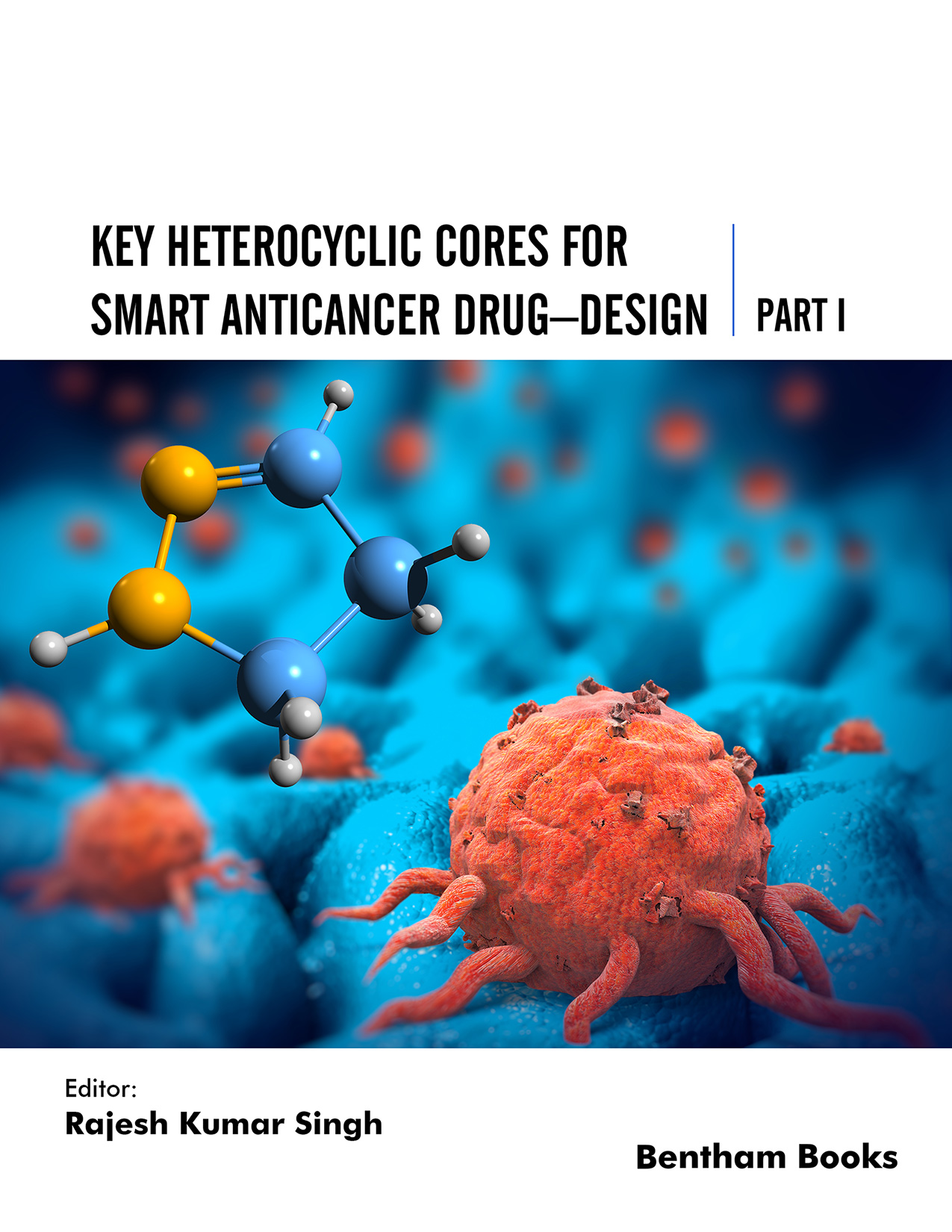Introduction
This book provides an update on heterocyclic compounds that serve as key components of anti-cancer agents administered in pre-clinical settings. Many of the compounds highlighted in the book are being actively investigated for the bioactive properties against a range of cancer cell lines. There is potential for heterocyclic compounds to design agents that can target specific molecules to treat different types of cancers. Chapters are contributed by experts in pharmaceutical chemistry and are written to give a general overview of the topic to readers involved in all levels of research and decision-making in pharmaceutical chemistry and anti-cancer drug design.
Part 1 of the book set covers these topics:
- - Heterocyclic anticancer compounds derived from natural sources with their mechanism of action
- - The role of terpenoids as anticancer compounds: an insight into prevention and treatment
- - Recent advances in synthesis and anticancer activity of benzothiazole hybrids as anticancer agents
- - Structure-activity relationship studies of novel hybrid quinoline and quinolone derivatives as anticancer agents
- - Tetrazoles: structure and activity relationship as anticancer agents
- - Progress in nitrogen and oxygen-based heterocyclic compounds for their anticancer activity: an update (2017-2020)

